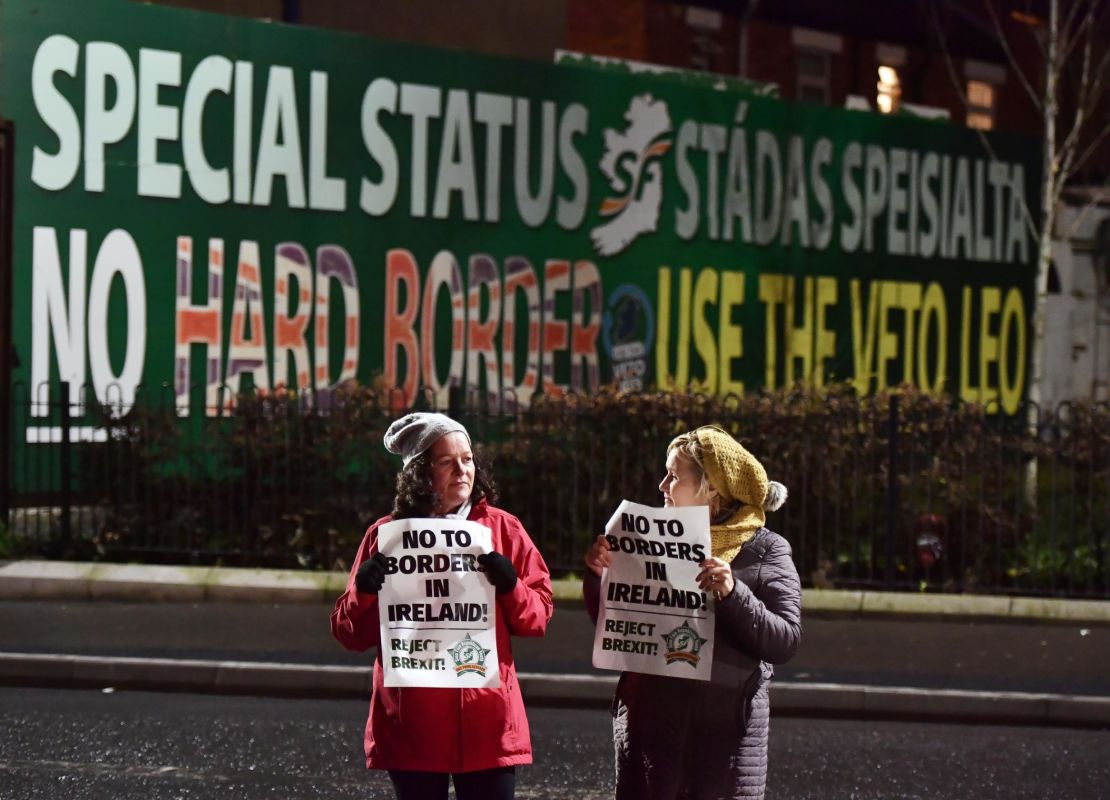This week, British Prime Minister Theresa May faces a moment of truth over Brexit. After months of debating the detail of the legislation that will trigger UK withdrawal from the European Union, the House of Commons will stage crucial votes on Tuesday and Wednesday that will decide her fate.
Until just a few days ago, it looked like members of Parliament would overturn key parts of May’s Brexit plans – and in turn wield the power to bring down her government. Yet now, with just hours to go before the parliamentary showdown, the Prime Minister looks as though she has brought her administration back from the brink.
Exactly a year ago, it looked like May did not have long left in office. She had almost lost a general election she never needed to call, squandering her Conservative Party’s overall majority and forcing her to rely on the support of the smaller Democratic Unionist Party. Within days of this electoral calamity, May was heavily criticized for her response to a genuine disaster – the devastating fire at Grenfell Tower that claimed 71 lives.
A party divided
In the months that followed, May struggled to assert her authority over her party and government, with a string of ministers resigning from the Cabinet and disunity over Brexit among those who remained around her top table. The Prime Minister was forced to mollify different parts of her party – including those arch Brexiteers who would rather the UK crashed out of the EU with no deal than the government agree to a soft Brexit, as well as rebellious Conservative MPs who want the public to have another vote on what Brexit will look like.

Pressure intensified when, in a series of votes in the House of Lords last month, peers changed key aspects of May’s Brexit plans, even voting to keep Britain in the single market and customs union. It is these 15 changes that MPs will vote on this week – either keeping the Lords amendments, which would endanger May’s government, or overturning them in favor of the Prime Minister.
By last week, Cabinet ministers were openly undermining May’s authority, setting up what had the potential to be May’s final scene as Prime Minister, with defeat this week in the Commons on the Brexit bill. Foreign Secretary Boris Johnson told a private dinner, in comments that were recorded and leaked to Buzzfeed, that Donald Trump would make a better negotiator with Brussels on Brexit. May’s Brexit Secretary, David Davis, seemed to be on the verge of resigning over the government’s plans for a backstop to avoid a hard border on the island of Ireland.
Yet over the course of a few days, the Prime Minister has, apparently, turned things around. Davis has suggested he will resign several times since entering the job two years ago, and each time he failed to do so has strengthened May’s position. She agreed to demands from Davis and fellow Brexiteers to put a time limit on the backstop customs proposal, yet left the door open to it being extended.
Crucially, over the weekend, two senior MPs and former ministers from either side of the Brexit divide in the Conservative Party joined forces to urge their fellow MPs to back the government in the Commons votes on Tuesday and Wednesday. Amber Rudd, the ex-Home Secretary and a leading supporter of Britain remaining in the EU, and Iain Duncan Smith, a prominent campaigner for Leave, co-wrote an article urging unity among Conservatives. There are suggestions that some of the Tory MPs who had been poised to rebel have changed their minds, for fear of letting the opposition Labour Party and leader Jeremy Corbyn seize power.
For Labour’s part, in fact, the leadership’s plans in this week’s votes weaken the chances of government defeat, because their MPs are being urged to back different amendments to the Brexit legislation, rather than support the changes made in the House of Lords.
May seems safe – for now
It seems that May will survive as Prime Minister – for now at least. On Monday night, she will address her MPs at a private meeting, urging them to “send a message to the country” that the Conservative Party is united on Britain’s withdrawal from the EU.
A year after that election, it is, perhaps, her sheer longevity in office, the simple fact that she has clung on to power despite all the challenges, that has made her stronger. Yet how long will this unity last?
At some point, there will have to be a reckoning on Brexit. Lingering concerns over the way the Brexit referendum was won were fueled over the weekend when it emerged that Arron Banks, a major donor to the Leave campaign, had previously undisclosed meetings with senior Russian officials in the run-up to the June 2016 vote. (Banks says he’s the victim of a witch-hunt.)
While these revelations don’t immediately affect the British Prime Minister, they are likely to stiffen the resolve of the die-hard Remain supporters – including some Conservative MPs – who want the Brexit plans to be put to another referendum.

The issue of the border between Northern Ireland and Ireland has not been solved. And while May has managed to assert some authority inside her government and party, she remains weak in Brussels. And the negotiation process demands that Britain has made significant progress on the key issues of Brexit before an EU summit at the end of this month – including on the contentious issue of a customs union, to which Brexiteers remain steadfastly opposed.
There are also more votes to come in the Commons later this month, on separate Brexit legislation, that could see disgruntled Conservative MPs stage a rebellion. The Prime Minister seems to have averted disaster for her government this week – but maybe only this week.

